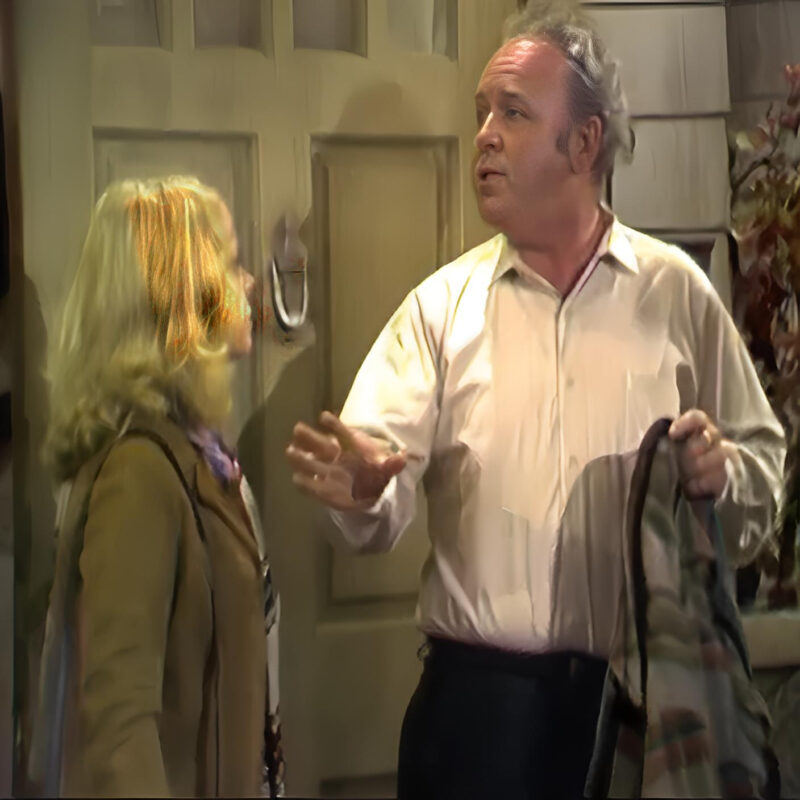
I don’t recall my mother watching much prime-time TV in the early 1970s. If anything, she would have been watching Spanish-language soap operas, as a bookend to the English-language soaps she enjoyed in the afternoon.
But somehow, Norman Lear’s “All in the Family” came to her attention, and it quickly became must-see TV in our household after its premiere in January 1971. Quite simply, I had never seen my mom laugh so much and so heartily.
Like many others, she was entertained by Carroll O’Connor’s portrayal of Archie Bunker and the outrageous things he said—things a sitcom character had never said before on American television. Of course, much of the humor revolved around Archie’s bigotry, which Lear and his writers used brilliantly to confront common attitudes in white America.
While “All in the Family”—set in the New York City borough of Queens—addressed the Black-and-white racial divide that defined and roiled our country, the series also struck a nerve with people like my mom. Like many Mexican Americans of her generation, she harbored racism toward Black people rooted in Mexico’s colonial period, when Spanish explorer Hernán Cortés brought African slaves to New Spain. That racism endured for generations and was in the DNA of the Mexicans who suddenly became Mexican Americans after the 1848 Treaty of Guadalupe Hidalgo created the border we know today.
Margarita Rios was born in 1926 in El Paso, Texas. There weren’t many Black residents in that border town, and so her racial attitudes were a classic example of unfamiliarity breeding contempt. At the risk of trivializing racism, hers was not ugly or hateful; it was simply born of inherited ignorance. As Kris Kristofferson wrote in his song “Jesus Was a Capricorn”: “Everybody’s got to have somebody to look down on.”
I have to believe that Archie Bunker’s ignorance, at some level, forced my mom to confront her own. She wouldn’t have intellectualized that, but it surely must have seeped in. The pushback Archie got from his son-in-law (played by Rob Reiner) mirrored that of my older brother. Just as Reiner pushed Archie’s buttons by bringing home a Black friend, my brother, too, had brought home a Black friend from college—and he made it clear to our mom that she was to be polite. (Of course, she ended up being quite fond of my brother’s friend.)
But the episode I remember most is when Sammy Davis Jr., playing himself, visited the Bunker home to retrieve the briefcase he had left in Archie’s cab. After being subjected to Archie’s ridiculous pronouncements about race, on his way out the door, Davis asks to take a photograph with Archie. Just as the photo is taken, Sammy plants a kiss on Archie’s cheek.
Archie was stunned into silence. The laughter from the studio audience reportedly went on for a long time. The laughter in our living room went on forever.
Thank you, Norman Lear.
Oscar Garza is the director of the graduate program in Specialized Journalism/Arts & Culture at the USC Annenberg School for Communication and Journalism.
